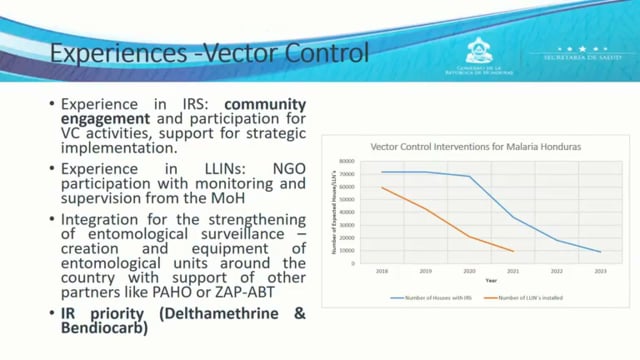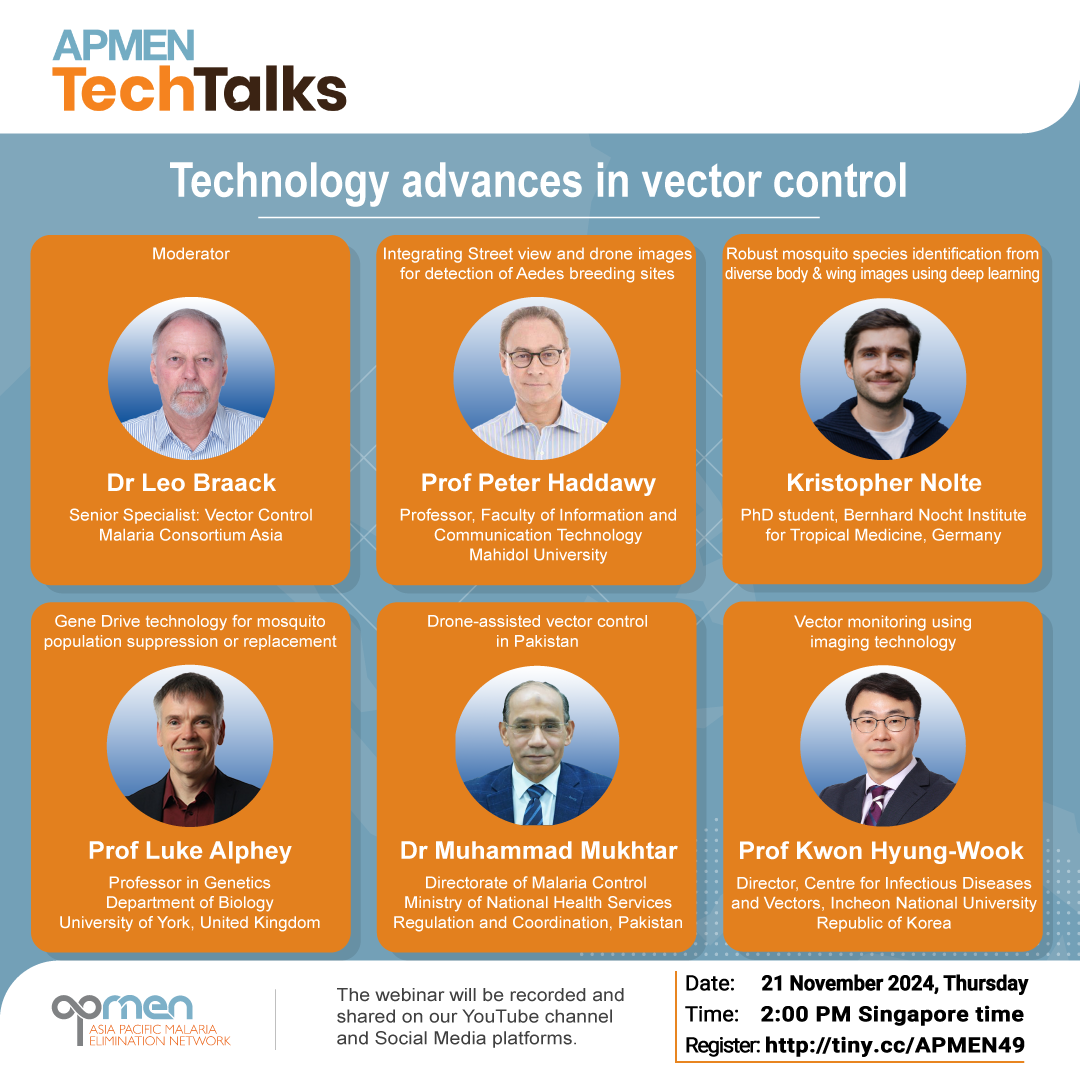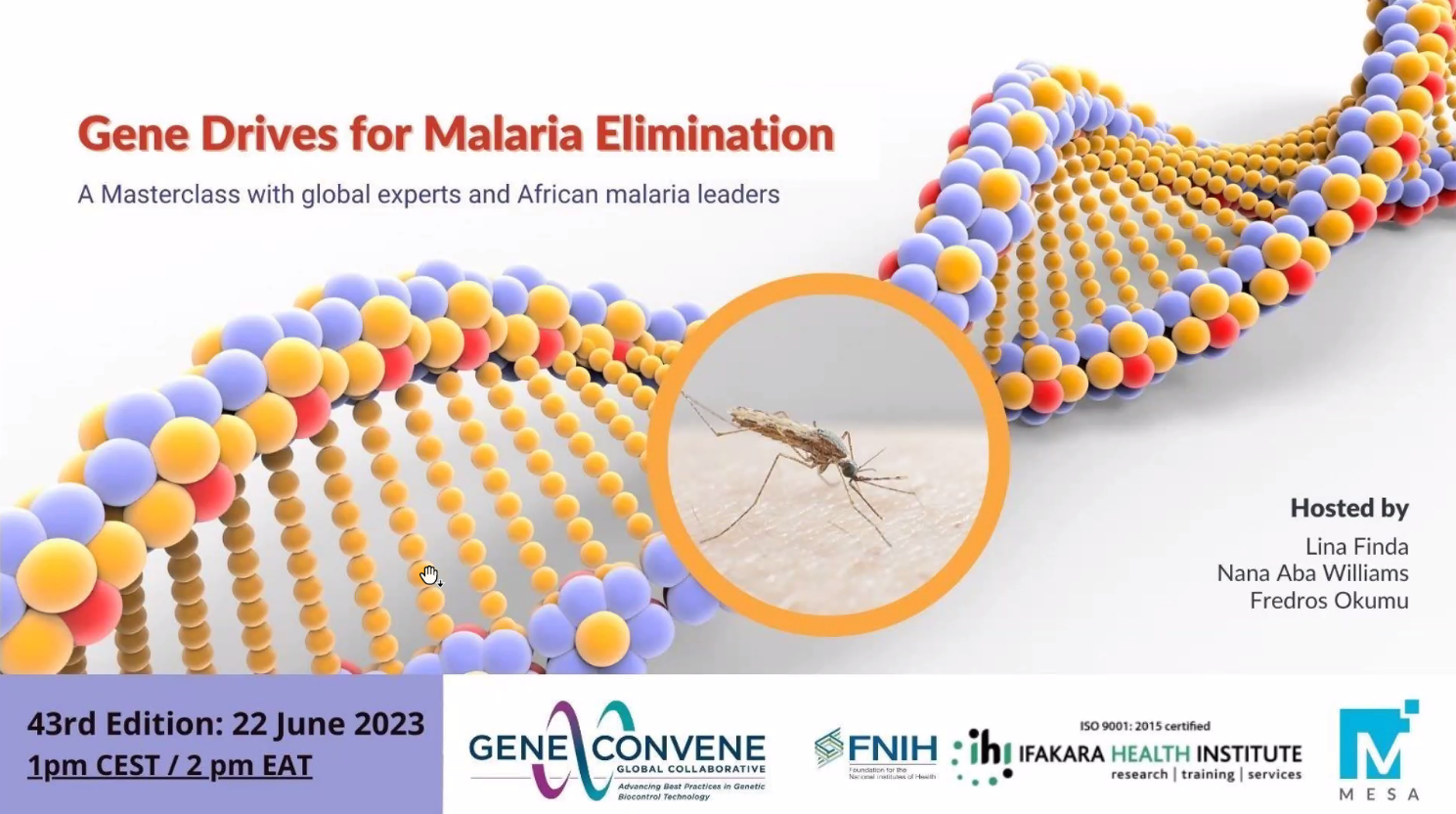ASTMH 2018, Denis Escobar: “Insecticide resistance surveillance and management in an elimination context: The example of Honduras”
Collaborator(s): Ministry of Health (MoH) Honduras, Honduras
Countries: Honduras
Published: 01/11/2018
In collaboration with ASTMH, Image Audiovisuals, and session presenters, MESA brings you this webcast from the 67th ASTMH annual meeting in New Orleans, October 2018
Title: “Insecticide resistance surveillance and management in an elimination context: The example of Honduras”
Speaker: Denis Escobar, Honduras Ministry of Health, Tegucigalpa, Honduras
Session information:
November 1, 2018, 10:15 AM – 12:00 PM, Marriott – La Galerie 3 (2nd Floor)
Abstract:
Comprehensive malaria control strategies, including Integrated Vector Management (IVM), are required to sustain the gains that have been achieved and reach subnational, national, and regional elimination. Presenters have been selected to provide overviews from both the regional and country perspectives. The Pan American Health Organization (PAHO) is best placed to provide an overview regarding the epidemiology and challenges related to malaria elimination in the Americas. PAHO’s recent significant investment in building a regional public health entomology program with active engagement with ministries of health from member states has led to the development of renewed regional approaches to IVM for both malaria control and elimination. Mexico’s Health Secretariat has successfully eliminated malaria from most of the previously endemic areas of Mexico. This has been achieved through an integrated approach that includes vector control using both adult and larval control strategies and environmental management. However, Mexico remains vulnerable due to its proximity to endemic areas, and the flow of migrants from endemic areas. In Central America, Honduras has experienced significant drops in malaria transmission over the past decade. Where foci persist, the Ministry of Health has developed a vector surveillance and control plan that includes insecticide resistance surveillance and management. Honduras, together with its neighbors in Mesoamerica, are currently receiving significant investment from multiple stakeholders to assist in their malaria elimination efforts. Suriname, one of the countries with lowest malaria incidence in South America, has long emphasized the role of vector surveillance and control as part of its national malaria control program. However, a key challenge is effective vector surveillance and control in hard-to-access malaria endemic areas, such as gold mining camps, which are currently the primary malaria transmission foci. The role of IVM in such scenarios is becoming increasingly relevant, as significant drops in malaria transmission occurs alongside areas where malaria transmission persists amongst hard-to-reach populations. The role that IVM has played, and how that role will likely evolve over the coming years, will provide an important example to other countries entering the final elimination push. Specific experience with IVM strategies in contexts where the greatest vector-borne disease burden is arboviruses rather than malaria will also be discussed. The symposium will conclude with a Q&A panel with presenters as an opportunity to further discuss best practices and novel approaches to IVM for successful and sustained elimination.
THEMES: Insecticide Resistance | Surveillance | Vector Control


